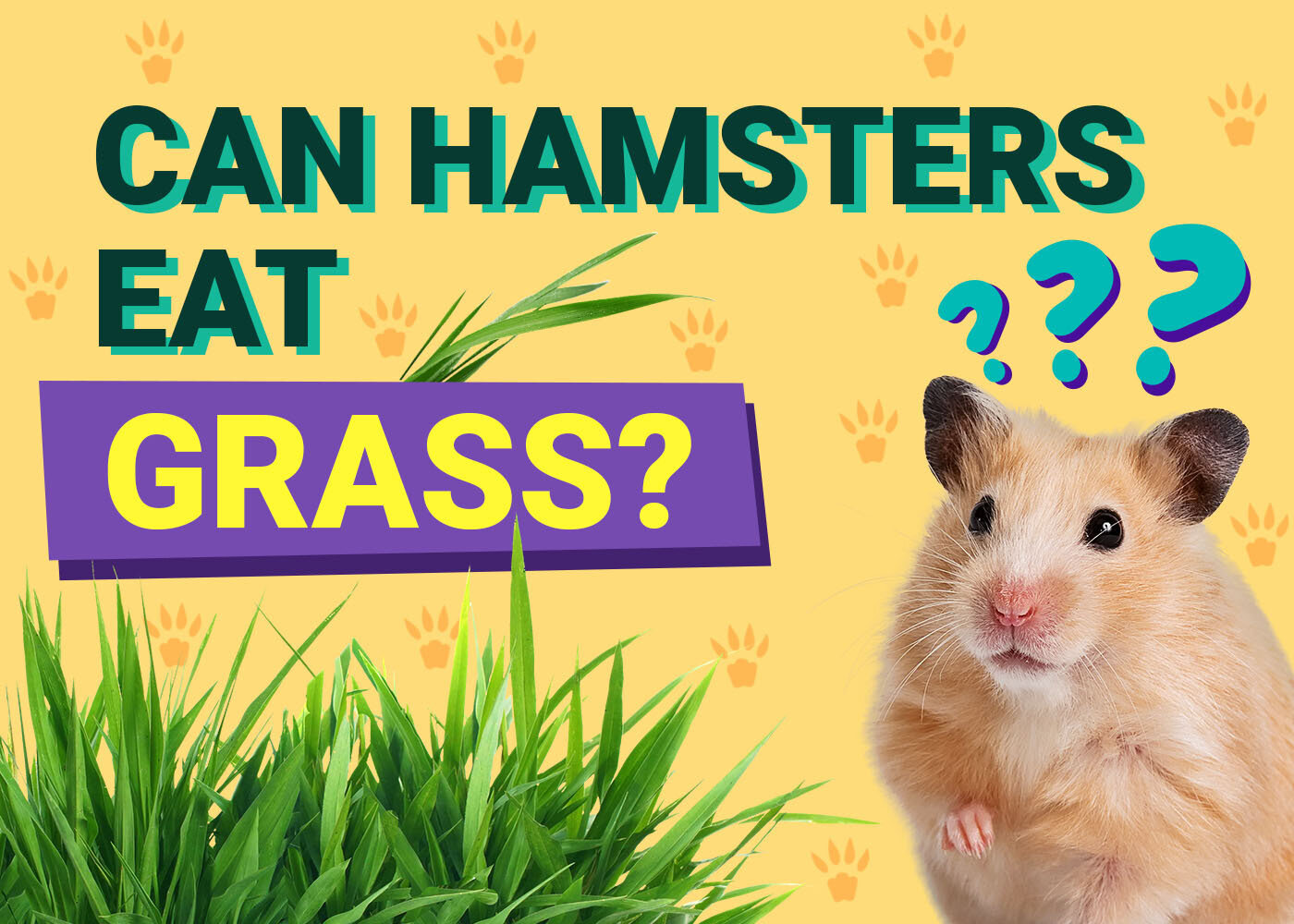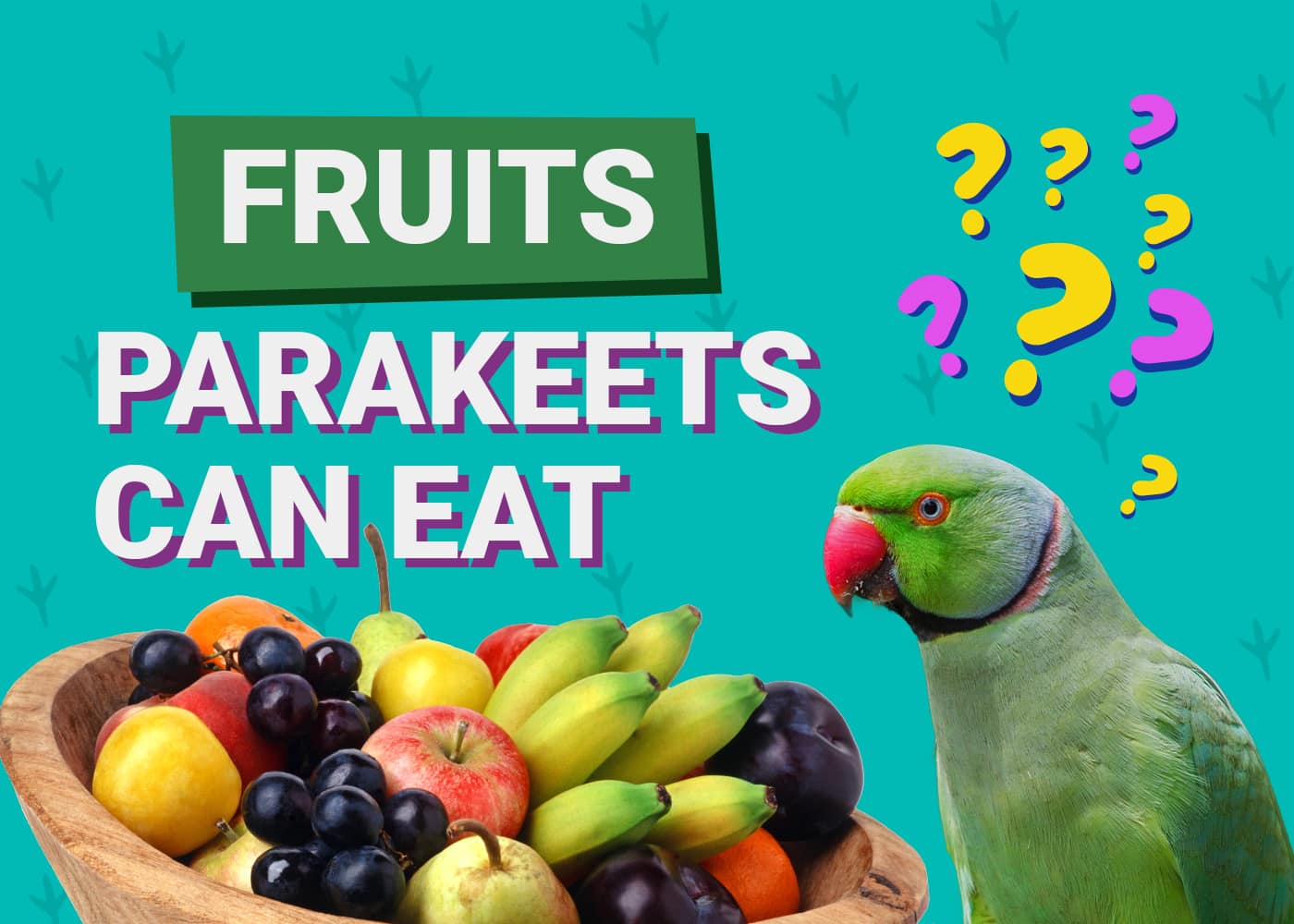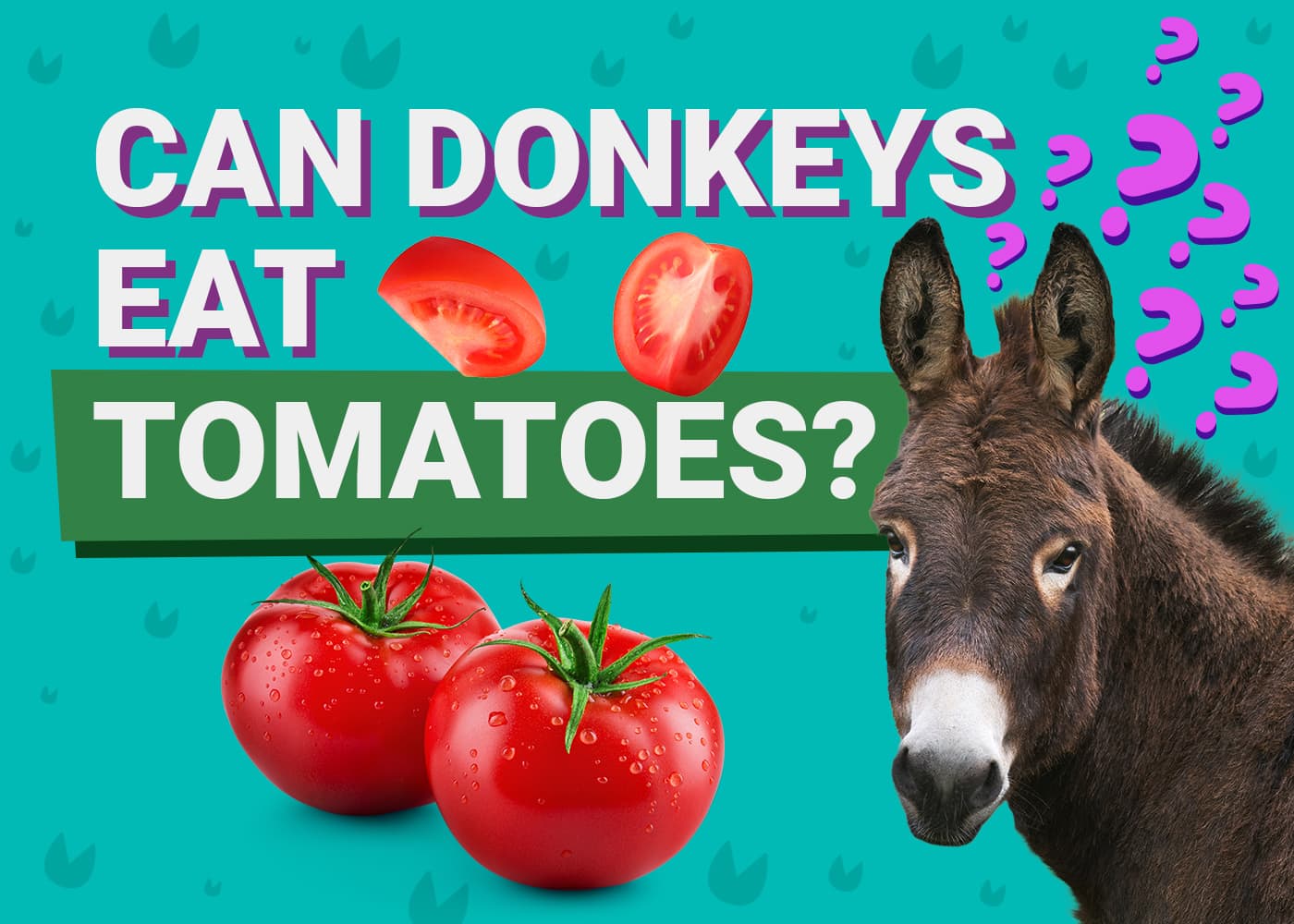VET APPROVED

The information is current and up-to-date in accordance with the latest veterinarian research.
Learn more »Click to Skip Ahead
Low maintenance and easygoing, hamsters are a popular first pet, but as an exotic animal, they have very particular care requirements, especially regarding their diet. If you’re new to hamster ownership, you might not yet know what is and isn’t safe for your little buddy to consume. If you’re curious about the suitability of grass for your pet, you’ve come to the right place!
While hamsters can eat grass, it isn’t the healthiest food for them. Their digestive systems aren’t designed to derive nutrients from grass, so there are plenty of other, more nutritious foods out there for your hammy.
Read on to learn more about grass and its suitability for your hamster.

Can Hamsters Eat Grass?
Hamsters can have grass, but they absolutely should not be allowed to graze on it all day. Other small critters, like guinea pigs or rabbits, thrive on grass and hay, but your hamster’s digestive system isn’t built the same. Too much grass can wreak havoc on his hamster’s digestive system, so moderation is key if you offer some to your hammy.
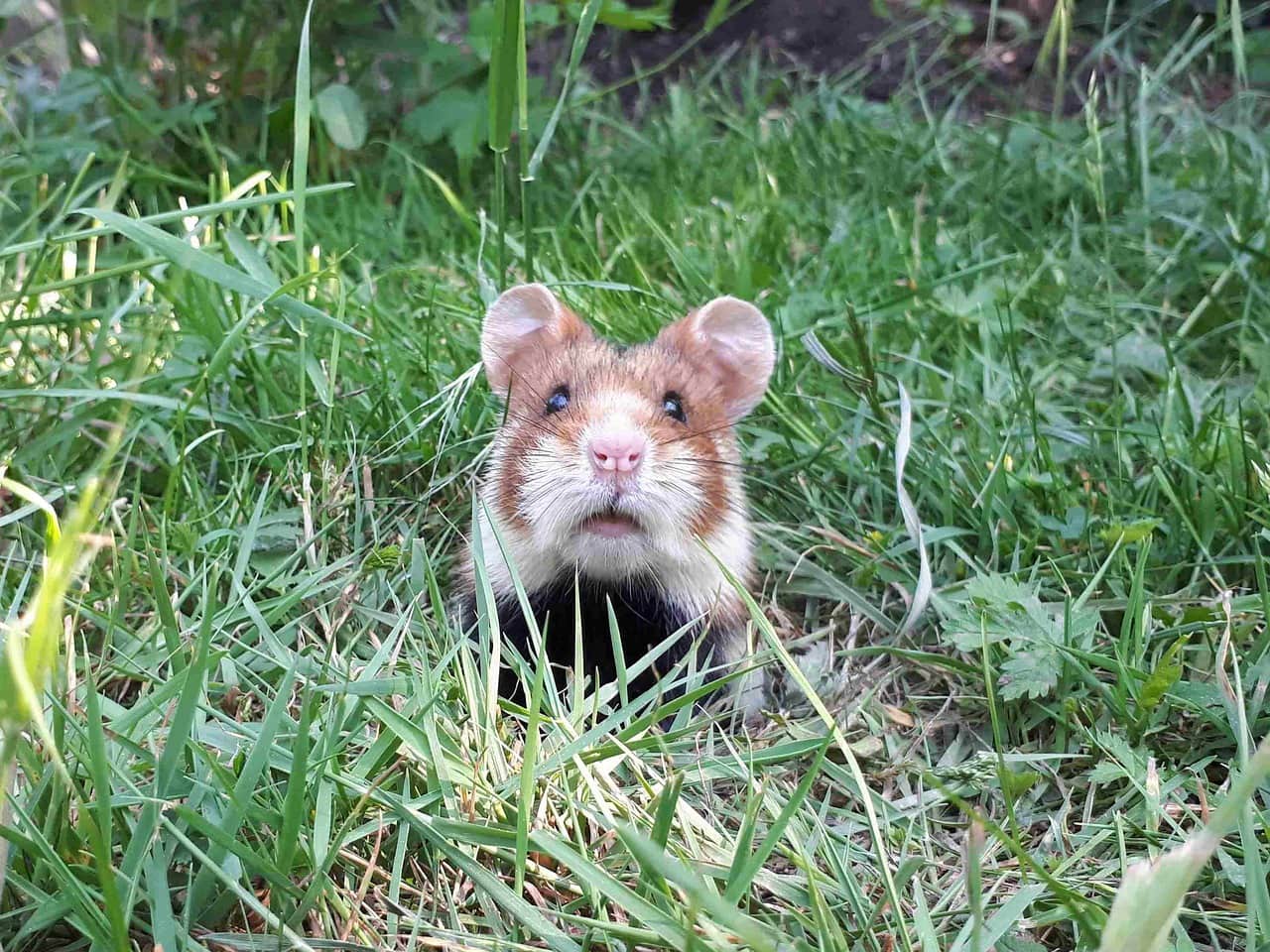
Is Grass Nutritious?
Grass is nutritious for some animals, but not necessarily hamsters. Your pet’s body isn’t designed to unlock the nutrients that grass provides. When he eats grass, it’ll go right through him without benefiting him in the same way it would benefit a guinea pig or rabbit.

How Can I Give Grass to My Hamster?
If your hammy is interested in grass and you’d like to give him a taste, there are some things you should know. The grass must be:
- Chemical free
- Pesticide free
- Clean of feces
- Not including roots
You must only serve grass from your own yard (provided it hasn’t been treated with chemicals like pesticides). Picking wild grass can be hazardous as you don’t know what the grass has been exposed to or treated with.
If you decide to give your pet grass, one or two sprigs will be more than enough. Remember to only offer it occasionally, as the bulk of your hamster’s diet should consist of more species-appropriate foods.
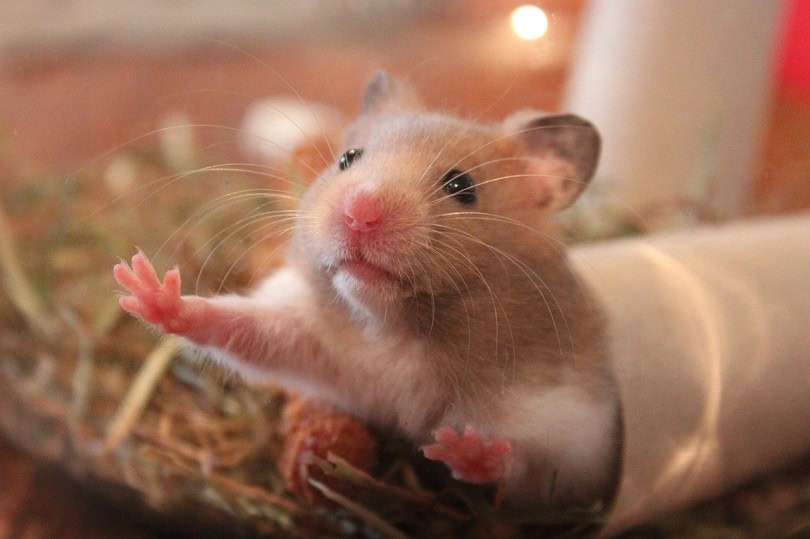
What About Dry Grass and Hay?
Now we’re onto the good stuff. Hamsters love to dig, burrow, and chew, and providing them with hay like Timothy grass is a great way to give them something to make a nest in, as well as something to help keep their teeth in good condition.
Although hamsters will enjoy munching on a bit of hay, it is not something they will eat a huge amount of. If you do notice that your hammy seems to be spending a lot of time chewing on their hay, it’s worth having a check up with the vet to make sure there’s not something going on.

What Should Hamsters Eat?
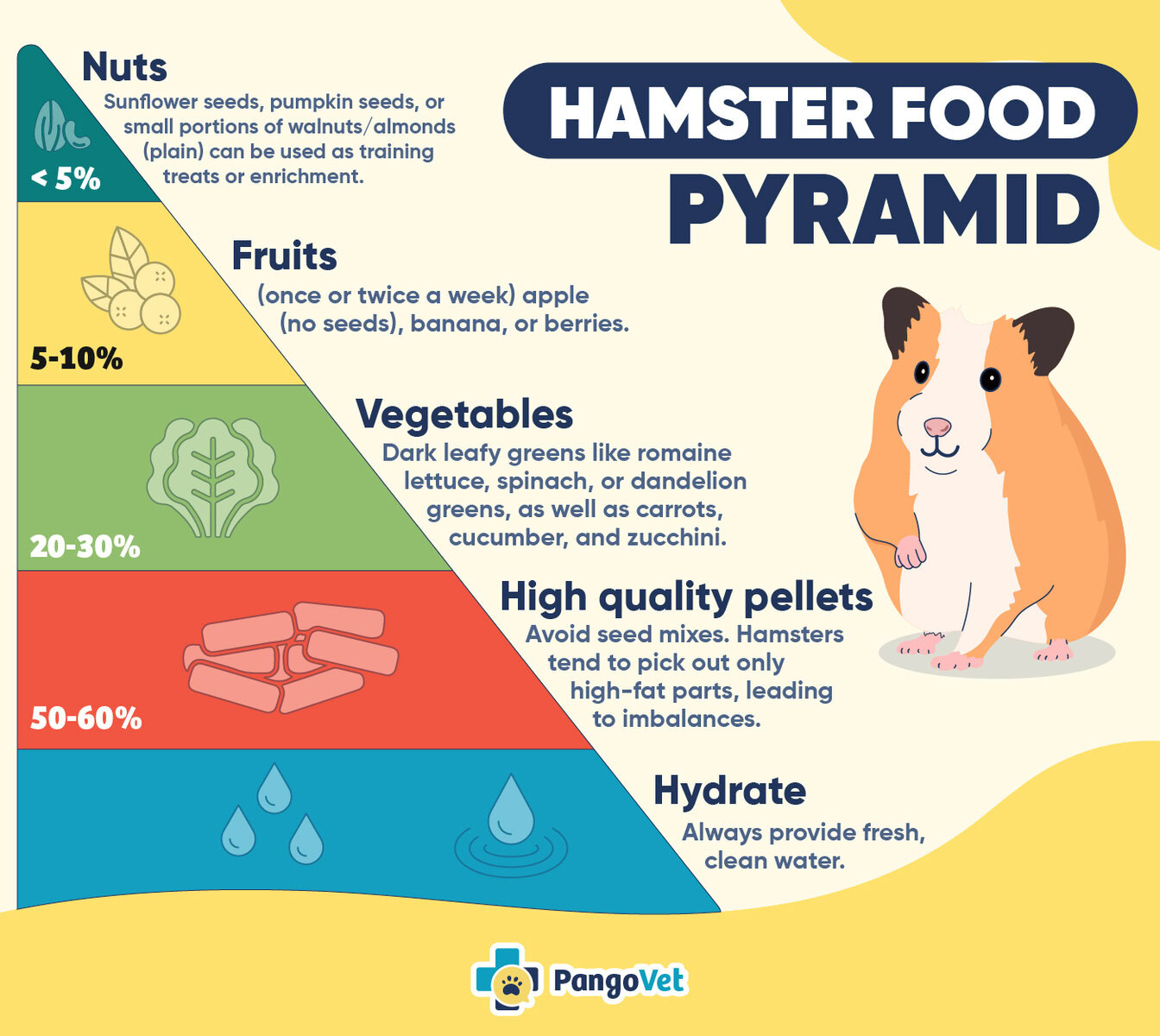
Your pet’s diet should consist of several key components.
- 60% pellets
- 20-30% vegetables, greens, and fruit
- 5-10% treats
First, a commercial hamster pellet is recommended to make up most of your pet’s diet. Most will require anywhere between 1/8 to 1/3 cup of pellets daily.
Hamsters can eat small amounts of fresh vegetables, herbs, and fruits. The best options include greens, apples, peas, peppers, and cucumbers.
Some hamster owners feed diets consisting primarily of seeds. Unfortunately, seeded diets are known to cause significant nutritional deficiencies, so seeds should only be offered as a supplement to a pelleted diet.
Treats are great for building a bond with your pet but should be offered sparingly. Seeds and species-appropriate insects such as mealworms are a great treat.
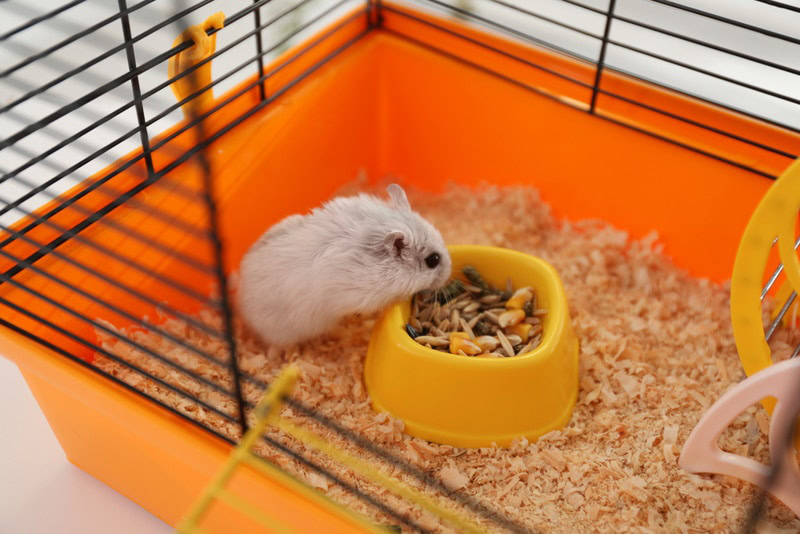

Final Thoughts
While grass isn’t toxic or harmful in small quantities for your hamster, it isn’t a nutritious food we recommend offering your pet unless he absolutely loves it. There are plenty of other treats and nutrient-rich foods that are more species-appropriate for your hammy.
Hay, on the other hand, is a great way to enrich your hamster’s habitat and help keep their teeth healthy.
Featured Image Credit: Sheryl Watson, Shutterstock
